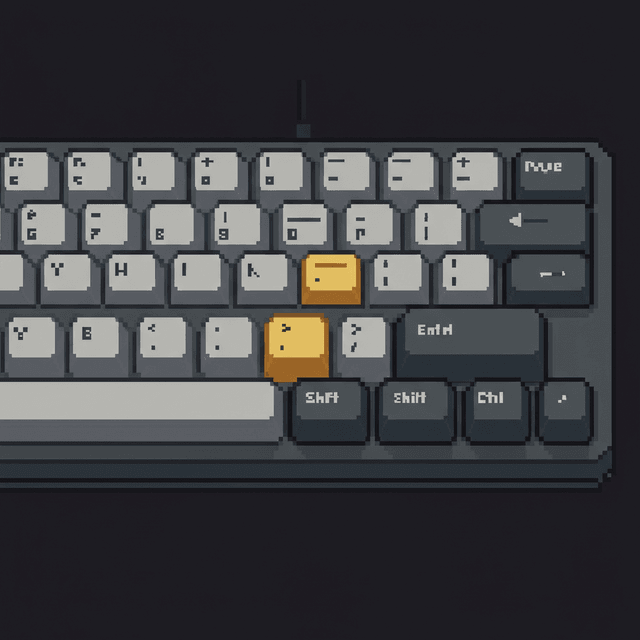- Published on, Time to read
- 🕒 2 min read
Typing Em and En dashes with AutoHotkey

Typing special characters like the em dash (—) and en dash (–) can be a bit clunky on standard keyboards. You often have to remember specific Alt codes or rely on software auto-correction. I'm using simple shortcuts in the AutoHotkey script to map the en dash and em dash to the number pad.
What are Em and En dashes?
Before we dive into the script, let's quickly recap what these dashes are for:
- En Dash (–): Slightly wider than a hyphen, it's primarily used to indicate ranges (e.g., "pages 10–15", "Monday–Friday") or connections.
- Em Dash (—): The width of the letter 'M', it's often used to indicate a pause or break in thought—much like this—or to set off parenthetical statements.
AutoHotkey to the Rescue
AutoHotkey is a fantastic free scripting language for Windows that allows you to automate tasks, remap keys, and create custom shortcuts.
Here's a simple script I use to map the en dash and em dash to convenient shortcuts using the number pad:
; En dash: Alt + Numpad Minus
!NumpadSub::
Send, {ASC 0150} ; Sends the Alt code for en dash
return
; Em dash: Alt + Numpad Plus
!NumpadAdd::
Send, {ASC 0151} ; Sends the Alt code for em dash
return
How it Works
!NumpadSub::and!NumpadAdd::: These lines define the hotkeys.!represents the Alt key,NumpadSubis the minus key on the numeric keypad, andNumpadAddis the plus key.Send, {ASC 0150}/Send, {ASC 0151}: This command tells AutoHotkey to simulate typing the Alt codes for the en dash (Alt+0150) and em dash (Alt+0151), respectively.return: This indicates the end of the hotkey's action.
With this script running, you can simply press Alt + Numpad Minus for an en dash (–) and Alt + Numpad Plus for an em dash (—) in any application. It's a small tweak, but it makes typing these useful punctuation marks significantly faster!
☕Did you like the article? Support me on Ko-Fi!